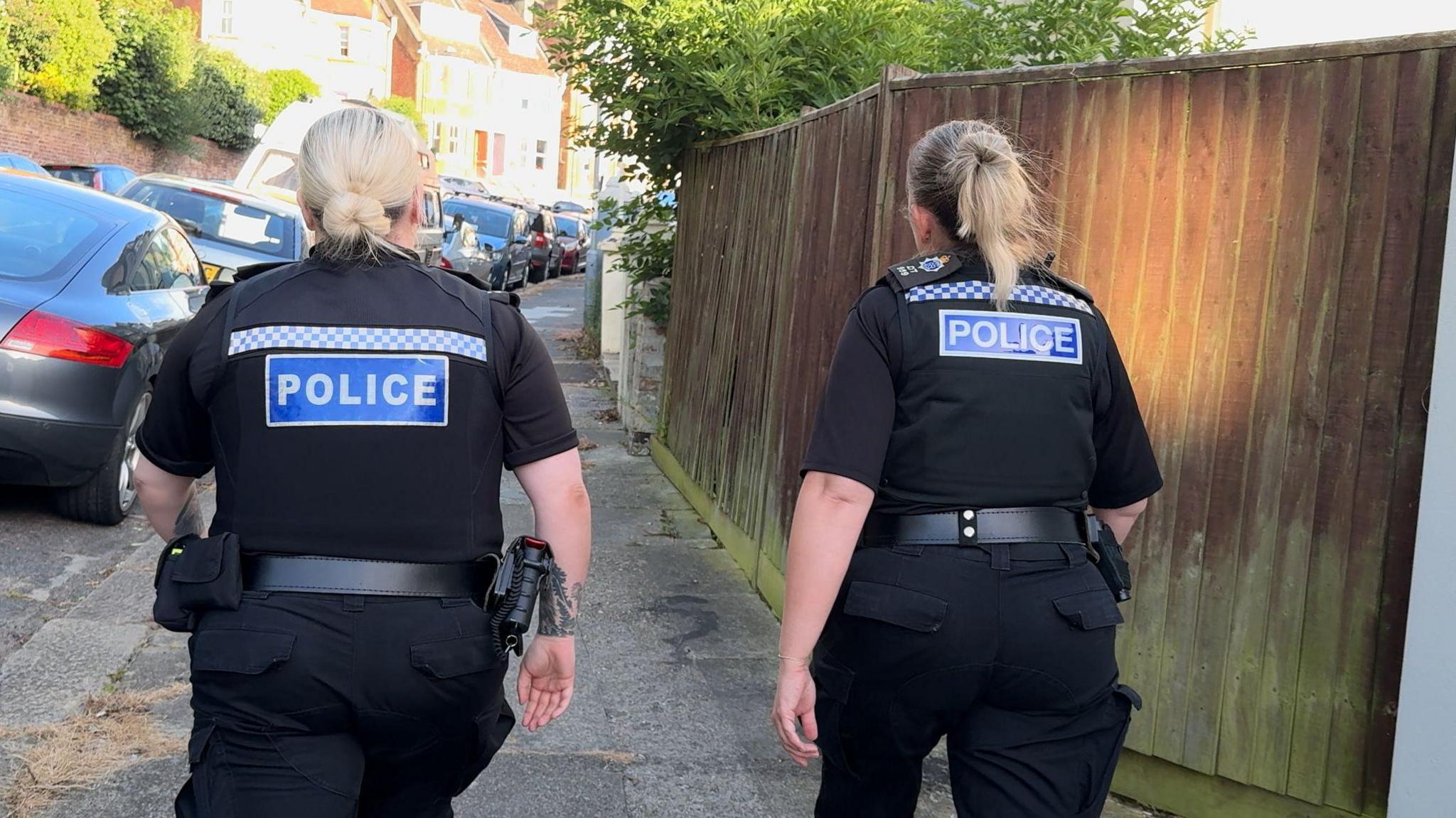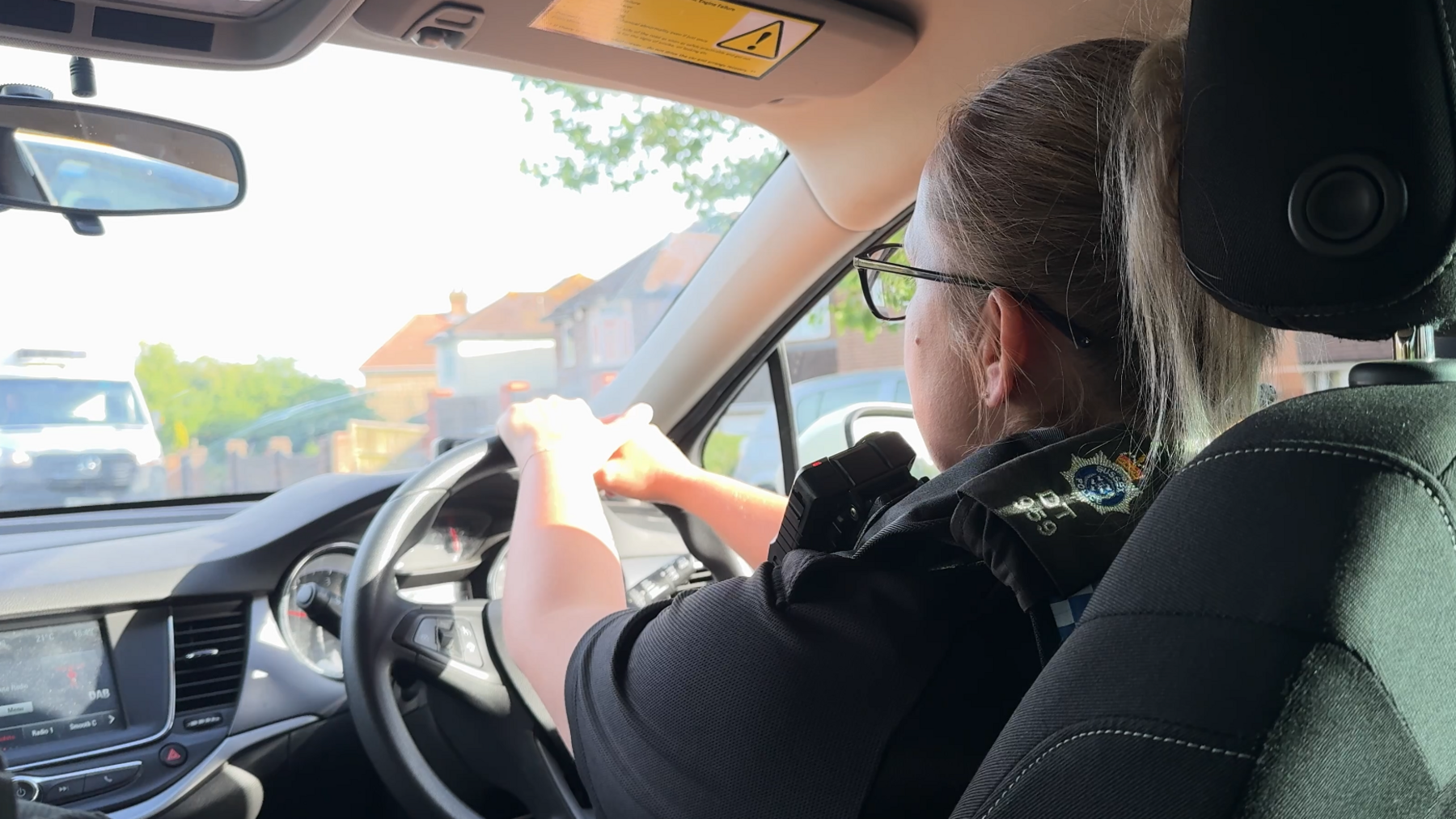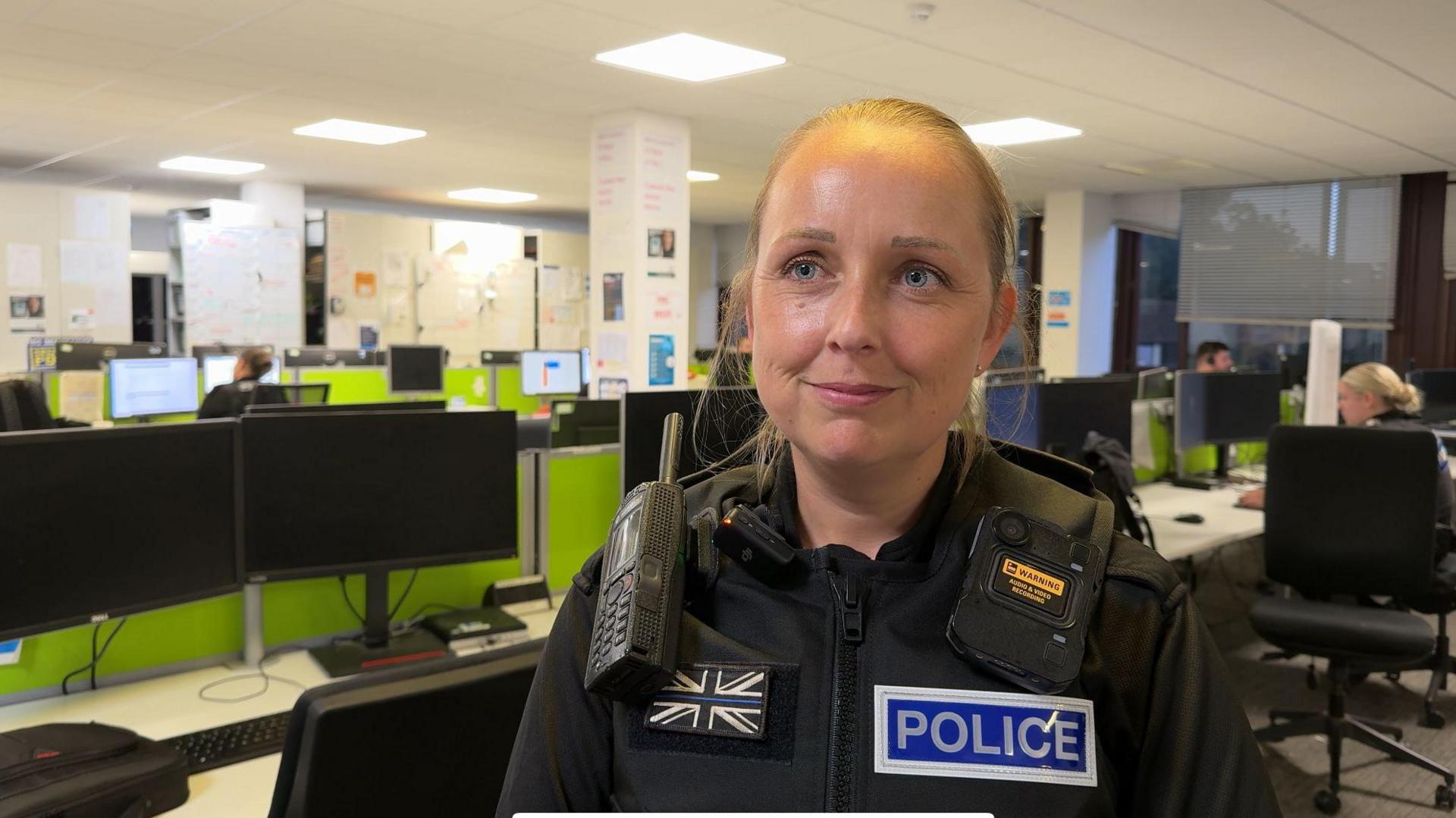'Police deal with mental health crises every day'

Each response officer attends dozens of urgent incidents every shift
- Published
With police forces hoping to raise awareness of how they react to emergencies, the BBC was invited to go out on patrol with Sussex Police’s response team to see what a typical shift involves.
It’s 21:30 BST at Hastings police station and most of the response team is out on the road responding to 999 calls.
In Worthing there are reports of gunshots, domestic violence, and concerns that an elderly woman had fallen over in her home and died.
Now the sun has set, more calls are coming in in Hastings.
It’s been a busy evening and there is already a backlog of more than 50 cases waiting for a response.
Within minutes of meeting the team, Hastings officers are called to a young, vulnerable person in distress.
Beyond crime
PC Mel Orme says this type of incident is one of the most common.
“So much of what we deal with is to do with mental health crises," she says.
"It's not just about crime. It's keeping people safe."
PC Orme spends time reassuring the young person, before taking them to a safe location.

Officers say their role is often to keep people safe rather than solving crimes
Immediately after returning to the police vehicle, another incident buzzes through the radio.
A worried neighbour has called to say a six-year-old is alone and locked in the flat next door.
This job requires more than one department. The officers call a squad that can break down the door, and then contact social services.
PC Orme spends more than an hour reassuring the child through the wall and keeping her calm.
Eventually, the officers locate her parents.
In the seven hours shadowing PC Sam Turner and PC Orme they deal with nearly a dozen incidents ranging from traffic stops to reports of antisocial behaviour.
Back in the office, the backlog of cases has grown.

PC Sam Turner has been with Sussex Police for more than 15 years
“It’s really hard,” PC Turner says.
"Tonight, we’ve gone from job to job and I’ve not had a chance to sit down and deal with my other workload.”
'Challenging'
Meanwhile, in Worthing officers were called to reports of gunshots, a 999 call from a potential domestic abuse victim and concerns that an elderly woman had fallen over in her home and died.
PC Sophie Chaplin said: “It can be very busy, we’re quite stretched with resources unfortunately.
“The demand is very high, particularly in the summer when everybody is out and about enjoying the sunshine.
"There are highs and lows to the job and it is the most rewarding thing but I’m very glad I decided to join this job.”
Speeding around West Sussex, it becomes clear how busy these officers are. When they get back to base they must fill in paperwork on the jobs they have done.
They might have time to wolf down a sandwich if they get a spare five minutes.
PC Simeone Aldridge said: “It’s all action, we have a mass of jobs that definitely outnumber the officers who are available all the time because the demand is so high.
“Everyone works the best they can, whether the jobs we go to are difficult or whether it’s the demand and sheer number of jobs. "It can be challenging.”
Follow BBC Sussex on Facebook, external, on X, external, and on Instagram, external. Send your story ideas to southeasttoday@bbc.co.uk, external or WhatsApp us on 08081 002250.